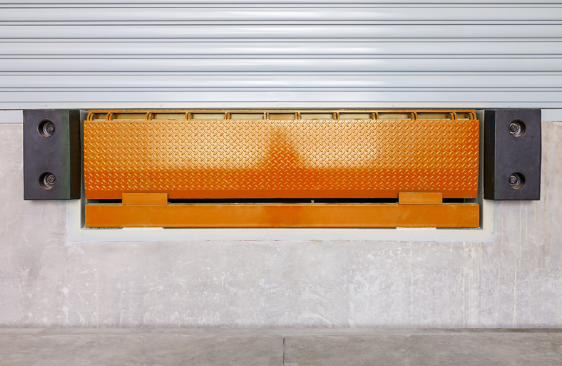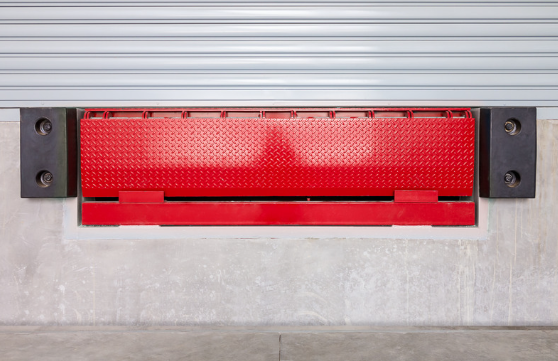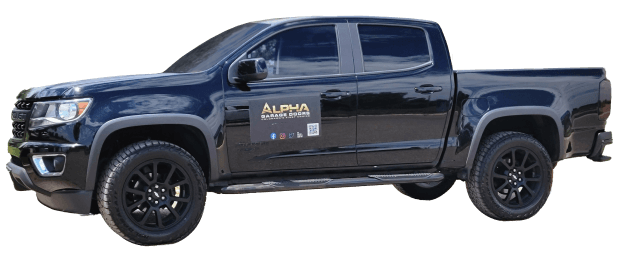Dock levelers are an essential piece of equipment in the logistics and warehousing industry, playing a crucial role in the efficient loading and unloading of goods. These innovative devices bridge the gap between a truck’s trailer and the warehouse floor, ensuring a seamless and safe transfer of materials. Understanding the importance of dock levelers is crucial for businesses that rely on smooth supply chain operations.

In this comprehensive article, we’ll delve into the world of dock levelers, exploring their purpose, types, and the mechanics behind their functionality. By the end of this guide, you’ll have a thorough understanding of why dock levelers are indispensable in modern logistics and how they can benefit your business.
Importance of Dock Levelers in Logistics and Warehousing
Dock levelers are the unsung heroes of the logistics industry, facilitating the smooth flow of goods and materials between trucks and warehouses. Without these essential devices, the loading and unloading process would be fraught with challenges, leading to delays, inefficiencies, and potential safety hazards.
The importance of dock levelers in logistics and warehousing operations cannot be overstated. They play a crucial role in:
- Ensuring Efficient Material Handling: Dock levelers bridge the gap between the truck’s trailer and the warehouse floor, allowing for seamless movement of goods, pallets, and equipment during loading and unloading.
- Enhancing Safety: Dock levelers help prevent accidents and injuries by providing a stable and secure platform for workers and equipment, reducing the risk of falls, slips, and trips.
- Improving Productivity: With the use of dock levelers, loading and unloading processes are streamlined, leading to faster turnaround times and increased productivity in your warehouse or distribution center.
- Minimizing Damage to Goods: Dock levelers help prevent damage to products and equipment during the loading and unloading process, reducing the risk of costly replacements and returns.
- Enabling Compliance with Regulations: Many industries have specific regulations and standards related to loading dock safety, and dock levelers help businesses meet these requirements.
By understanding the importance of dock levelers, you can ensure that your logistics and warehousing operations run smoothly, efficiently, and safely.
What is a Dock Leveler?
A dock leveler is a mechanical device installed at the loading dock of a warehouse or distribution center. Its primary function is to bridge the gap between the warehouse floor and the bed of a truck or trailer, allowing for the seamless movement of materials, equipment, and personnel during the loading and unloading process.

Dock levelers come in various sizes and capacities, designed to accommodate different types of trucks and trailers. They are typically made of sturdy steel construction and feature a hinged platform that can be raised, lowered, or extended to match the height and position of the truck’s trailer.
Types of Dock Levelers
There are several different types of dock levelers available, each with its own unique features and benefits. The most common types include:
- Mechanical Dock Levelers:
- These dock levelers use a spring-loaded mechanism to raise and lower the platform.
- They are manually operated, typically with a pull-chain or push-button control.
- Mechanical dock levelers are a cost-effective solution for low-to-medium traffic areas.
- Hydraulic Dock Levelers:
- These dock levelers use a hydraulic system to raise and lower the platform.
- They are powered by an electric motor or a manual pump, providing a more efficient and controlled operation.
- Hydraulic dock levelers are suitable for high-traffic areas and can handle heavier loads.
- Air-Powered Dock Levelers:
- These dock levelers use compressed air to raise and lower the platform.
- They offer a smooth and quiet operation, making them ideal for noise-sensitive environments.
- Air-powered dock levelers are often used in food processing facilities or other areas that require a clean and hygienic work environment.
- Vertical Storing Dock Levelers:
- These dock levelers are designed to retract vertically when not in use, freeing up valuable floor space in the loading dock area.
- They are suitable for facilities with limited space or where the dock area needs to be kept clear for other operations.
- Dock Levelers with Integrated Restraints:
- These dock levelers incorporate a vehicle restraint system, which helps secure the truck to the loading dock during the loading and unloading process.
- This feature enhances safety by preventing the truck from accidentally pulling away from the dock.
Depending on your specific requirements, such as the size and type of trucks you typically handle, the volume of traffic, and the available space in your loading dock area, you can choose the dock leveler that best suits your needs.
How Does a Dock Leveler Work?
Dock levelers are designed to bridge the gap between the warehouse floor and the truck’s trailer, ensuring a smooth and safe transition for materials, equipment, and personnel.
Here’s a step-by-step overview of how a dock leveler works:
- Positioning the Truck: The truck backs up to the loading dock, aligning its trailer with the dock leveler.
- Raising the Dock Leveler: Once the truck is in position, the dock leveler is activated, either manually or through a powered mechanism (hydraulic or air-powered). This raises the platform to match the height of the truck’s trailer bed.
- Extending the Dock Leveler: The hinged platform of the dock leveler extends outward, creating a smooth and level surface between the warehouse floor and the truck’s trailer.
- Loading and Unloading: With the dock leveler in place, materials, equipment, and personnel can now move safely between the warehouse and the truck’s trailer, facilitating the loading and unloading process.
- Retracting the Dock Leveler: After the loading or unloading is complete, the dock leveler is retracted, returning the platform to its original position flush with the warehouse floor.
The specific mechanics of how a dock leveler works may vary slightly depending on the type of dock leveler (mechanical, hydraulic, or air-powered), but the underlying principle remains the same: to provide a stable and secure connection between the warehouse and the truck’s trailer, enabling efficient and safe material handling.
Advantages of Using a Dock Leveler
Implementing a dock leveler in your logistics or warehousing operations can provide numerous benefits, including:
- Improved Safety: Dock levelers help prevent accidents and injuries by providing a stable and secure platform for workers and equipment, reducing the risk of falls, slips, and trips.
- Enhanced Efficiency: With a dock leveler, the loading and unloading process is streamlined, leading to faster turnaround times and increased productivity in your warehouse or distribution center.
- Reduced Damage to Goods: Dock levelers help prevent damage to products and equipment during the loading and unloading process, reducing the risk of costly replacements and returns.
- Compliance with Regulations: Many industries have specific regulations and standards related to loading dock safety, and dock levelers help businesses meet these requirements.
- Versatility: Dock levelers are designed to accommodate a wide range of truck and trailer sizes, ensuring that your loading and unloading operations can handle a variety of vehicles.
- Improved Workflow: By bridging the gap between the warehouse floor and the truck’s trailer, dock levelers enable a seamless flow of materials, equipment, and personnel, optimizing your overall logistics and warehousing operations.
- Increased Lifespan of Equipment: Proper use and maintenance of dock levelers can extend the lifespan of your material handling equipment, such as forklifts and pallet jacks, by reducing wear and tear.
By leveraging the advantages of dock levelers, you can enhance the safety, efficiency, and productivity of your logistics and warehousing operations, ultimately improving your overall business performance.
Common Issues and Maintenance of Dock Levelers
Like any piece of equipment, dock levelers can experience various issues and require regular maintenance to ensure their optimal performance and longevity. Some common issues and maintenance considerations include:
- Wear and Tear: Over time, the moving parts of a dock leveler, such as the hinges, springs, and hydraulic components, can experience wear and tear, leading to potential malfunctions or decreased functionality.
- Damage from Impacts: Dock levelers can sustain damage from heavy impacts, such as when a forklift or other equipment accidentally collides with the platform. This can compromise the structural integrity of the device.
- Debris Accumulation: Dust, debris, and other foreign materials can accumulate in the dock leveler’s mechanisms, causing operational issues and increased wear.
- Electrical or Hydraulic Failures: In the case of powered dock levelers (hydraulic or air-powered), electrical or hydraulic system failures can prevent the proper functioning of the device.
To address these issues and ensure the long-term reliability of your dock levelers, it’s essential to implement a comprehensive maintenance program that includes:
- Regular Inspections: Regularly inspecting your dock levelers for signs of wear, damage, or debris buildup can help identify and address issues before they become more serious.
- Preventive Maintenance: Performing scheduled maintenance tasks, such as lubrication, adjustments, and component replacements, can help extend the lifespan of your dock levelers and prevent unexpected breakdowns.
- Prompt Repairs: If issues are identified, it’s crucial to address them promptly to minimize downtime and ensure the continued safe and efficient operation of your dock levelers.
- Training for Operators: Educating your dock personnel on the proper use and care of dock levelers can help prevent misuse or accidental damage, further enhancing the longevity of these critical pieces of equipment.
By proactively maintaining your dock levelers and addressing any issues that arise, you can ensure the smooth and reliable operation of your loading and unloading processes, ultimately supporting the overall efficiency and productivity of your logistics and warehousing operations.
Choosing the Right Dock Leveler for Your Business
Selecting the appropriate dock leveler for your business involves considering a variety of factors to ensure that the chosen solution meets your specific needs and requirements. Some key considerations when choosing a dock leveler include:
- Traffic Volume: Assess the volume and frequency of loading and unloading activities at your facility to determine the appropriate dock leveler capacity and type (e.g., mechanical, hydraulic, or air-powered).
- Dock Height and Truck Sizes: Measure the typical heights of your loading dock and the trucks or trailers you service to ensure the dock leveler can accommodate the required range of heights.
- Available Space: Consider the physical dimensions of your loading dock area and choose a dock leveler that fits within the available space, including any vertical clearance requirements.
- Safety Features: Look for dock levelers with integrated safety features, such as vehicle restraint systems, to enhance the overall safety of your loading and unloading operations.
- Environmental Conditions: If your facility experiences extreme temperatures, high humidity, or other environmental factors, select a dock leveler that is designed to withstand these conditions.
- Maintenance and Serviceability: Evaluate the ease of maintenance and accessibility of the dock leveler’s components to ensure that routine upkeep and any necessary repairs can be performed efficiently.
- Energy Efficiency: For powered dock levelers, consider the energy consumption and operating costs to align with your sustainability and cost-saving objectives.
- Budget and Return on Investment: Determine your available budget and assess the long-term return on investment (ROI) of the dock leveler, factoring in the potential improvements in safety, efficiency, and productivity.
By carefully evaluating these factors and consulting with experienced dock leveler suppliers or installation professionals, you can ensure that you select the right dock leveler solution for your business, optimizing your loading and unloading operations for maximum efficiency and cost-effectiveness.
Installation and Safety Considerations for Dock Levelers
Proper installation and ongoing safety considerations are crucial for ensuring the reliable and safe operation of your dock levelers. Here are some key factors to keep in mind:
- Installation by Qualified Professionals
It’s recommended to have your dock levelers installed by experienced and certified professionals who can ensure the proper integration with your existing loading dock infrastructure.
- Electrical and Mechanical Inspections
For powered dock levelers, it’s essential to have the electrical and mechanical systems inspected and tested by qualified technicians to verify their safe and proper functioning.
- Adherence to Safety Standards
Dock levelers should be installed and operated in compliance with relevant safety standards and regulations, such as those set by the Occupational Safety and Health Administration (OSHA) or the American National Standards Institute (ANSI).
- Operator Training
Ensure that your dock personnel receive comprehensive training on the proper use and maintenance of the dock levelers, including safety protocols and emergency procedures.
- Regular Inspections and Maintenance
Implement a regular inspection and maintenance schedule to identify and address any issues or wear and tear on the dock levelers, ensuring their continued safe and reliable operation.
- Clear Signage and Markings
Clearly mark the dock leveler’s operating area and provide visual cues or warnings to help prevent accidents and ensure the safety of workers and equipment.
- Backup Safety Systems
Consider incorporating additional safety features, such as vehicle restraint systems or dock safety lights, to further enhance the overall safety of your loading and unloading operations.
- Emergency Preparedness
Develop and regularly review emergency response plans to address potential dock leveler malfunctions or other loading dock emergencies, ensuring the safety of your personnel and the protection of your assets.
By prioritizing proper installation, ongoing maintenance, and a strong safety-first approach, you can maximize the performance and longevity of your dock levelers while maintaining a safe and efficient loading and unloading environment for your business.
FAQs
What is a dock leveler used for?
A dock leveler bridges the gap between a loading dock and a truck bed, ensuring a smooth and safe transfer of goods. It adjusts to height differences between the dock and vehicle, providing a secure platform for forklifts and workers to load or unload items efficiently.
What is the difference between a dock plate and a dock leveler?
The primary difference lies in functionality and weight capacity. A dock plate is a lightweight, portable solution made for manual handling and light loads, typically moved by hand. A dock leveler, however, is a more permanent, heavy-duty solution installed in a pit and can support forklifts and heavy equipment during loading.
What are the disadvantages of a dock leveler?
Dock levelers can be expensive to install and maintain, especially hydraulic models that require regular servicing. Additionally, their permanent installation requires space and specific site preparation, making them less flexible compared to portable alternatives like dock plates.
How long does a dock leveler last?
With proper maintenance, a dock leveler can last 15 to 20 years. Regular inspections, lubrication, and part replacements are essential to ensure optimal performance and prevent premature wear or safety issues over time.
What is the purpose of a leveler?
The purpose of a leveler is to provide a flat and secure surface by compensating for uneven heights, ensuring smooth transitions between two surfaces. In the case of dock levelers, it ensures stability between a dock and a truck bed during loading and unloading.
What is the purpose of a dock leveler pit?
A dock leveler pit is a recessed space in the loading dock that houses the dock leveler, allowing it to stay flush with the dock floor when not in use. This design ensures the leveler is ready to deploy when needed while keeping the dock area clear and safe for movement during downtime.
Conclusion
At Alpha Garage Door, we understand that the right dock leveler can make all the difference in streamlining your loading and unloading operations. A well-functioning dock leveler not only ensures the safe transfer of goods but also helps improve efficiency, reducing downtime and minimizing risks during material handling. With the right equipment in place, your business can operate smoothly, even during the busiest times.
Our team at Alpha Garage Door specializes in providing high-quality dock levelers tailored to meet the needs of your facility. Whether you require hydraulic, mechanical, or pneumatic models, we offer expert guidance to help you choose the perfect solution. We also provide reliable installation and maintenance services to keep your dock leveler performing optimally for years to come, ensuring your operations run without disruption.
Don’t let inefficient equipment slow down your supply chain. Contact Alpha Garage Door today to explore our range of dock levelers and discover how we can help you improve productivity and safety at your facility. With our expert solutions, you’ll have the peace of mind that comes from knowing your loading and unloading processes are in good hands.
End Note
At Alpha Garage Door, we offer a wide range of residential and commercial garage doors designed to meet your specific needs. Explore our services to find out how we can enhance the functionality and security of your garage. Whether you’re in need of new installations, repairs, or upgrades, we’ve got the perfect solution for you.
Discover great deals by visiting our Specials page and take advantage of the savings we offer. Curious about our previous projects? Check out our Gallery to see the high-quality work we’ve delivered to satisfied customers. If you’re wondering whether we serve your area, explore our Service Area page for detailed coverage information.
We take pride in customer satisfaction, and you can read what our clients have to say on our Reviews page. For more information about who we are and what drives us, visit our About page to learn more about our values and dedication to service excellence.
Ready to get started? Head to our Contact page to speak with our expert team or explore our full range of garage doors. Stay ahead with Alpha Garage Door and visit our website today to find the best solutions for all your garage door needs.
